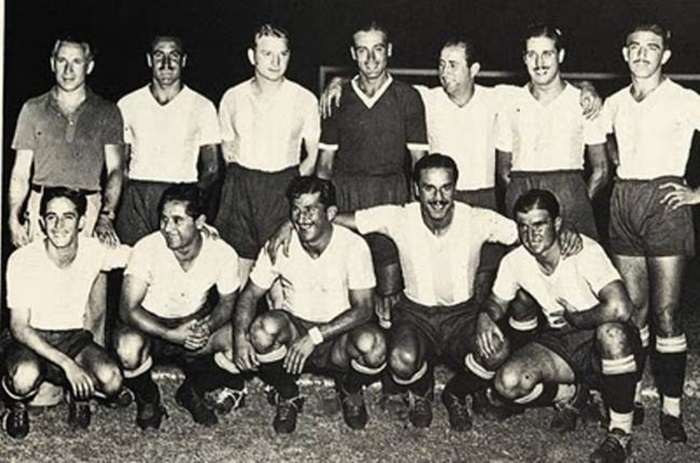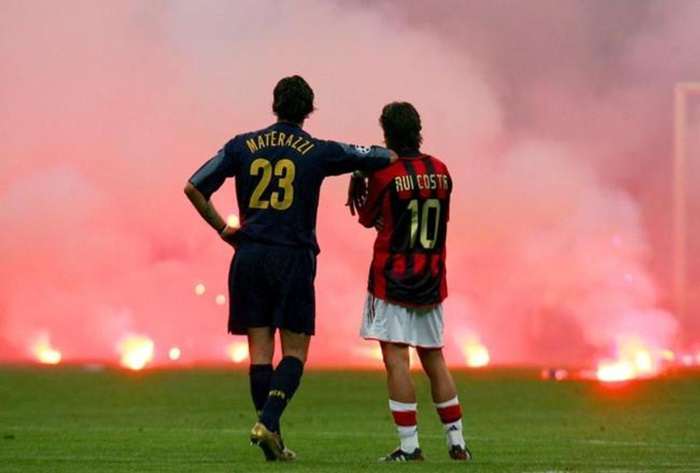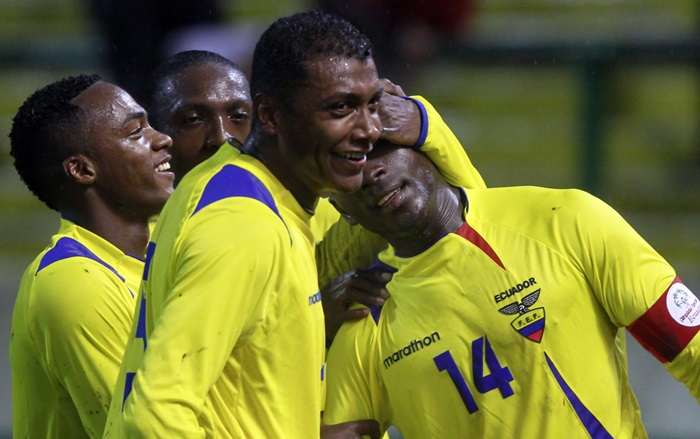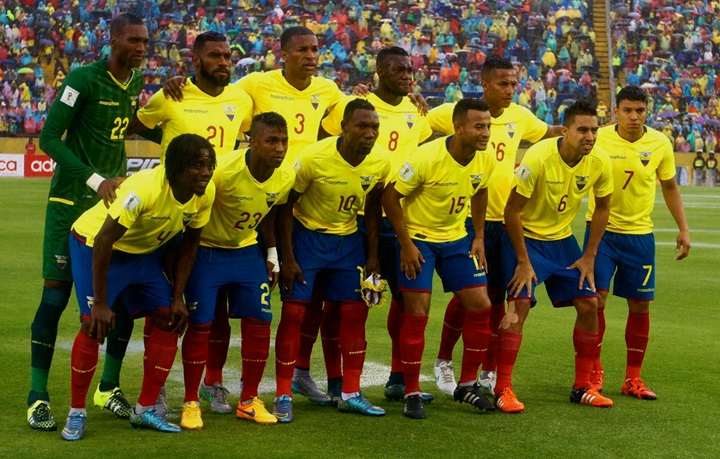Football is more than just a game in Ecuador; it’s a celebration of culture, identity, and national pride. The Ecuador National Football Team, known as “La Tri,” represents a country with a deep-seated love for the sport. From thrilling World Cup campaigns to unforgettable qualifiers and friendly matches, Ecuador’s football journey is one of passion, dedication, and a touch of magic. In this comprehensive article, we will explore the history, significant games, key players, and the impact of the Ecuador National Football Team on both the national and international stages.
The Historical Evolution of Ecuadorian Football

Early Beginnings
Ecuador’s football journey began in the early 20th century, with the sport gaining popularity through local clubs and amateur competitions. The country’s first official football association was established in 1925, marking the beginning of organized football in Ecuador.
The Formation of La Tri
The Ecuador National Football Team, often referred to as “La Tri” due to their tri-colored jerseys, was officially formed in 1957. The team’s first international appearance came in the 1960 South American Championship (now Copa América), where they faced tough competition from regional giants.
Memorable World Cup Moments
2002 FIFA World Cup: The Debut Stage
Ecuador’s debut in the FIFA World Cup came in 2002, hosted by South Korea and Japan. The team was drawn into Group G, alongside Italy, Mexico, and Croatia. Although Ecuador didn’t advance past the group stage, their performances, including a notable 1-0 victory against Croatia, showcased the team’s potential on the global stage.
2006 FIFA World Cup: The Group Stage Triumph
The 2006 World Cup in Germany saw Ecuador making its mark with a solid performance in the group stage. The team was placed in Group A, with Germany, Costa Rica, and Poland. Ecuador secured their place in the Round of 16 by defeating Costa Rica 3-0 and Poland 2-0. Their journey ended with a 1-0 loss to England, but their progress was a testament to their growth and determination.
2014 FIFA World Cup: A Disappointing Exit
The 2014 World Cup in Brazil was a challenging campaign for Ecuador. The team was placed in Group E, with Switzerland, France, and Honduras. Despite a promising start, Ecuador failed to advance past the group stage, with a draw against Honduras and losses to Switzerland and France.
2022 FIFA World Cup: The Road to Qatar
The 2022 World Cup in Qatar marked a return to the global stage for Ecuador. The team showed promise in the group stage, drawing with the Netherlands and Senegal and securing a victory against Qatar. However, their journey was cut short as they were eliminated in the group stage, but the performances indicated a bright future for Ecuadorian football.
Key Qualifying Matches: Road to Glory
The 2014 World Cup Qualifiers: A Rollercoaster Ride
The qualifiers for the 2014 World Cup were a rollercoaster for Ecuador. The team had a strong start, winning key matches and briefly topping the South American qualifying table. However, a series of inconsistent performances towards the end of the campaign saw them narrowly qualify in fourth place, securing their spot in the World Cup.
The 2018 World Cup Qualifiers: A Tough Challenge
The qualifiers for the 2018 World Cup in Russia were more challenging for Ecuador. Despite a strong start, the team struggled with consistency and ended the campaign in eighth place, missing out on the World Cup. The journey was marked by memorable matches and a reflection of the team’s resilience and fighting spirit.
The 2026 World Cup Qualifiers: A New Hope
As Ecuador embarks on the journey to the 2026 World Cup, there’s a renewed sense of hope and determination. The team has shown promise in the early stages of the qualifiers, with a focus on nurturing young talent and building a strong squad for the future.
Iconic Matches and Rivalries

Ecuador vs. Colombia: A Fierce Rivalry
The matches between Ecuador and Colombia are always highly anticipated, given the fierce rivalry between the two nations. These encounters are characterized by intense gameplay, passionate fans, and memorable moments. One notable match was in the 2006 World Cup qualifiers, where Ecuador secured a crucial 1-0 victory against Colombia, boosting their chances of qualification.
Ecuador vs. Peru: A South American Clash
The Ecuador-Peru clashes are another highlight in South American football. The matches are known for their competitive nature and passionate fan base. A memorable encounter was during the 2007 Copa América, where Ecuador defeated Peru 2-1 in a thrilling match that showcased the intensity of the South American football rivalry.
Ecuador vs. Argentina: A Historic Battle
Matches between Ecuador and Argentina are always significant, given Argentina’s football pedigree and Ecuador’s growing reputation. One of the most memorable encounters was in the 2011 Copa América, where Ecuador managed a 0-0 draw against Argentina, showcasing their ability to compete against some of the best teams in the region.
Notable Players: Legends of La Tri
Antonio Valencia: A Talented Winger
Antonio Valencia is one of Ecuador’s most celebrated footballers. Known for his speed, skill, and versatility, Valencia has been a key player for both the national team and his club, Manchester United. His contributions to Ecuador’s World Cup campaigns and international matches have made him a national hero.
Édison Méndez: The Midfield Maestro
Édison Méndez is another iconic figure in Ecuadorian football. Known for his vision, passing, and leadership, Méndez played a crucial role in Ecuador’s World Cup campaigns and was instrumental in their successful qualifiers. His performances on the international stage have left a lasting legacy in Ecuadorian football.
Enner Valencia: The Goal Scorer
Enner Valencia, not to be confused with Antonio Valencia, is renowned for his goal-scoring prowess. His performances in World Cup qualifiers and international matches have made him one of Ecuador’s top strikers. His goals and contributions have been vital in key games, showcasing his importance to the national team.
The Impact of Ecuadorian Football on National Identity

Uniting the Nation
Football in Ecuador serves as a unifying force, bringing together people from diverse backgrounds and regions. The national team’s successes and challenges are a source of collective pride, and major matches often become national events that transcend regional and social differences.
Promoting Youth Development
The success of the national team has led to increased investment in youth football development. Grassroots programs and academies have been established to nurture young talent and provide them with opportunities to develop their skills. This focus on youth development is crucial for the future success of Ecuadorian football.
Enhancing National Pride
The achievements of the Ecuador National Football Team have contributed to a sense of national pride and identity. The team’s performances on the global stage have brought recognition to Ecuador and showcased the country’s talent and passion for the sport.
Related Post:
Popular Google Doodle Games: A Fun and Nostalgic Journey
Mastering the Art of Slice: A Comprehensive Guide to Cool Math Games
Tampa Bay Rays Games: A Complete Guide for Fans
The Ecuador National Football Team’s journey is a testament to the passion, dedication, and talent that defines Ecuadorian football. From historic World Cup moments to fierce rivalries and legendary players, La Tri has made its mark on the global stage and continues to inspire fans both at home and abroad.
As Ecuador looks to the future, the focus remains on building a strong team, nurturing young talent, and achieving greater success on the international stage. The journey of the Ecuador National Football Team is far from over, and the excitement surrounding their games will continue to captivate fans and shape the future of Ecuadorian football.


